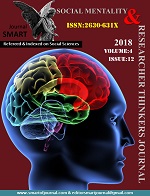Author :
Abstract
Bu çalışmanın amacı Bitcoin ve diğer kripto para birimlerinin turizm sektöründe ödeme aracı olarak kullanılma durumunu değerlendirmektir. Bu bağlamda teori, literatür incelenerek öncelikle kripto para birimleri kavramsal olarak ele alınmış ve kripto para birimlerinin piyasadaki kullanım durumları hakkında bilgi verilmiştir. Daha sonra turizm sektöründeki kripto para birimini kullanan şirketler incelenerek kripto para birimlerinin turizm sektöründe ödeme aracı olarak kullanımı değerlendirilmiştir. Çalışma sonucunda turizm sektöründe Bitcoin’in ödeme aracı olarak daha çok turizm portalları aracılığı ile kullanıldığı belirlenmiştir. Ayrıca söz konusu turizm portallarının turizm sektörünün daha çok konaklama ve havayolu taşımacılığı alt sektörlerine aracılık hizmeti sundukları belirlenmiştir. Çalışmada yine turizm sektöründe Bitcoin’in kullanılmasının hızlı para transferi ve düşük maliyet gibi avantajları olduğu gibi Bitcoin’in spekülasyona çok açık olması ve devletlerin yaptırım uygulama riski ile karşı karşıya kalınması gibi dezavantajları olduğu saptanmıştır. Çalışma durum tespitine yönelik, betimleyici bir araştırmadır. Çalışma sonucunda elde edilen bulguların, turizm sektörü özelinde Bitcoin konusunda yapılmış çalışmanın oldukça sınırlı olması nedeniyle alan yazına katkı sağlayacağı düşünülmektedir.
Keywords
Abstract
The purpose of this study is to evaluate the use of Bitcoin and other crypto currencies as a payment instrument in the tourism sector. In this context, by examining the theory and the literature, firstly crypto currencies are conceptually handled and information about the usage situation of crypto currencies on the market is given. Later, the companies using the cryptographic currency in the tourism sector were examined and the use of cryptographic currencies as a payment tool in the tourism sector was evaluated. As a result of the study, it has been determined that Bitcoin has been used more in tourism sector through tourism portals as a means of payment. In addition, it has been determined that the tourism sector of the tourism portals, in other words, offer more intermediary services to the sub-sectors of accommodation and air transport. The study also found that the use of Bitcoin in the tourism sector has advantages such as rapid money transfer and low cost, as well as the disadvantages of Bitcoin being very open to speculation and facing the risk of imposing sanctions by the states. The study is a descriptive research for determine the situation. The findings of the study are thought to contribute to the literature because of the limited work on Bitcoin in the tourism sector.
Keywords
- Ateş, B. A. (2016). “Kripto Para Birimleri, Bitcoin ve Muhasebesi”, Çankırı Karatekin Üniversitesi
- Ateş, B. A. (2016). “Kripto Para Birimleri, Bitcoin ve Muhasebesi”, Çankırı Karatekin Üniversitesi Sosyal Bilimler Enstitüsü Dergisi, 7(1): 349-366.
- Atik, M., Köse, Y., Yılmaz, B. & Sağlam, F. (2015). “Kripto Para: Bitcoin Ve Döviz Kurları Üzerine Etkileri”, Bartın Üniversitesi İ.İ.B.F. Dergisi, 6(11):247-261.
- Bradbury, D. (2013). The problem with Bitcoin. Computer Fraud & Security, 2013(11), 5-8.
- Coindesk.com. (2018). https://www.coindesk.com/200000-hotels-accept-bitcoin-cheapair/, ErişimTarihi: 07.03.2018.Coinmarketcap.com. (2018). https://coinmarketcap.com/coins/, Erişim Tarihi:06.03.2018.
- Coinmarketcap.com. (2018). https://coinmarketcap.com/currencies/bitcoin/, Erişim Tarihi: 06.03.2018.
- Coinmarketcap.com. (2018). https://coinmarketcap.com/exchanges/volume/24-hour/, Erişim Tarihi: 07.03.2018.
- Cointurk.com. (2018). https://coin-turk.com/turkiyede-bitcoin-kabul-eden-yerlerin-listesi, ErişimDilek, Ş. (2018). “Blockchain Teknolojisi ve Bitcoin”, SETA (Siyaset, Ekonomi ve Toplum Araştırmaları Vakfı), 231. https://setav.org/assets/uploads/2018/02/231.-Bitcoin.pdf
- Dulupçu, M. A., Yiyit, M. & Genç, A. G. (2017). “Dijital Ekonominin Yükselen Yüzü: Bitcoin’inDeğeri İle Bilinirliği Arasındaki İlişkinin Analizi”, Süleyman Demirel Üniversitesi İktisadi ve İdari Bilimler Fakültesi Dergisi, 22, Kayfor15 Özel Sayısı:2241-2258.
- Dyhrberg, A. H. (2016). “Hedging Capabilities Of Bitcoin. Is It The Virtual Gold?”, Finance Research Letters, 16, 139-144.
- Eyal, I., & Sirer, E. G. (2014, March). “Majority Is Not Enough: Bitcoin Mining Is Vulnerable”, In International conference on financial cryptography and data security (pp. 436-454).
- Fortune. (2017). http://fortune.com/2017/12/21/bitcoin-travel-cryptocurrency-bookings/, Erişim Tarihi:07.03.2018.
- Glaser, F., Zimmermann, K., Haferkorn, M., Weber, M. & Siering, M. (2014). “Bitcoin-Asset orCurrency? Revealing Users' Hidden Intentions” Twenty Second European Conference on Information Systems, Tel Aviv.
- Göde, B., & Küçükşahin, H. (2017, November). “Kripto Para Birimlerinin Kayıtdışı EkonomiÜzerine Etkileri; Bitcoin Örneği”, In ICPESS (International Congress on Politic, Economic and Social Studies) (No. 3).
- Grinberg, R. (2012). “Bitcoin: An Innovative Alternative Digital Currency”, Hastings Sci. & Tech. LJ, 4, 159.
- Gültekin, Y. (2017). “Turizm Endüstrisinde Alternatif Bir Ödeme Aracı Olarak Kripto Para Birimleri: Bitcoin”, Güncel Turizm Araştırmaları Dergisi, 1(2), 96-113.
- Gültekin, Y. & Bulut, Y. (2016). “Bitcoin Ekonomisi: Bitcoin Eko-Sisteminden Doğan YeniSektörler Ve Analizi”, Adnan Menderes Üniversitesi Sosyal Bilimler Enstitüsü Dergisi, 3(3):82-92.Koçoğlu, Ş., Çevik, Y. E. & Tanrıöven, C. (2016). Bitcoin Piyasalarının Etkinliği, Likiditesi Ve Oynaklığı. İşletme Araştırmaları Dergisi, 8(2), 77-97.
- Kristoufek, L. (2015). “What Are The Main Drivers Of The Bitcoin Price? Evidence From Wavelet Coherence Analysis”, PloS one, 10(4):1-15.
- Leung, D. & Dickinger, A. (2017). “Use Of Bitcoin in Online Travel Product Shopping: TheEuropean Perspective”, In Information and Communication Technologies in Tourism Springer, Cham: 741-754.
- Marian, O. (2013). “Are Cryptocurrencies Super Tax Havens?”, 112 Mich. L. Rev. First Impressions, 38-48.
- Nakamoto, Satoshi. (2008). “Bitcoin: A Peer-To-Peer Electronic Cash System”, https://bitcoin.org/bitcoin.pdf
- SikkeBlog. (2018). .http://blog.sikke.com.tr/on-satislar-hakkinda, Erişim Tarihi:07.03.2018.
- Sönmez, A. (2014). “Sanal Para Bitcoin”, TOJDAC (The Turkish Online Journal of Design), 4(3): 1- 14.
- Şişmanoğlu, E. & Akçalı, B.Y. (2017, November) “Dijital Dünyanın Yeni Buluşu: Bitcoin”, InICGCIM(International Conference on Global Competition and Innovation Management) Istanbul University
- Tschorsch, F. & Scheuermann, B. (2016). “Bitcoin And Beyond: A technical Survey OnDecentralized Digital Currencies”, IEEE Communications Surveys & Tutorials, 18(3), 2084-2123.
- Yermack, D. (2015). “Is Bitcoin A Real Currency?”, An Economic Appraisal. Handbook Of Digital Currency. 2015. 31-43.
